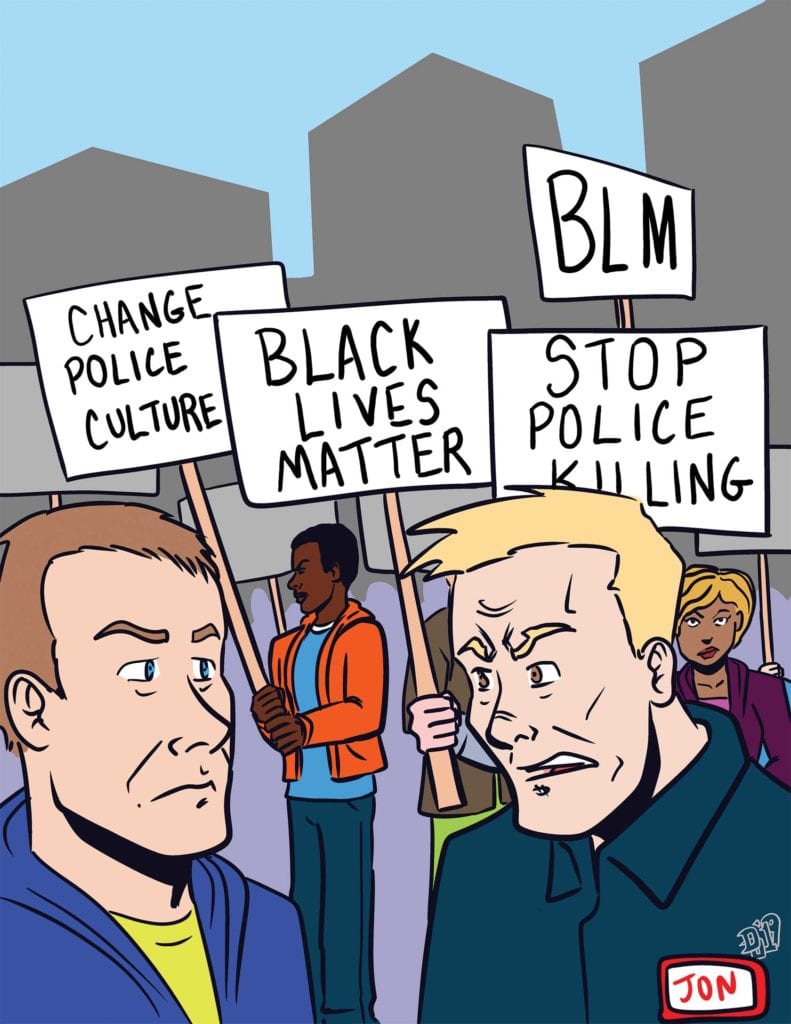
After a police officer gunned down 18-year-old Michael Brown in Ferguson, Missouri in 2014, media reports of similar police shootings since then have become a common element of news reports. The names of the victims have become well known in black communities. There was Eric Garner, “I can’t breathe,” in Staten Island. Tamir Rice, 12 years old, was shot by Cleveland police as he played with a toy gun. Laquan McDonald, 17, was killed in a hail of bullets from a Chicago policeman. Walter Scott was shot in Charleston, S.C. as he ran in fear from a policeman. The list is long, but there were never stories of white victims.
Many blacks had come to believe that the police assassination of black males was a violent form of racial discrimination — a more terminal penalty than the traffic citations issues for “driving while black.” What a surprise to learn from the Washington Post tally of fatal police shootings in 2018 that there were 452 whites among the 992 people killed by the police, compared to 229 blacks.
Surprisingly, whites are quite tolerant of the fatalities inflicted upon them by the police. While blacks become enraged and organize protests against police abuse, whites endure their affliction passively. They also take great offense to the slogan “Black Lives Matter.” It seems that they believe the slogan implies white lives are of no consequence.
This consequence is a prime example of cultural differences. The black view is that all lives matter. The objective of the “Black Lives Matter” slogan is to remind whites of that. Because of racial prejudice, blacks have been forced to assert that they have not been omitted from the human family. With whites’ highly competitive, zero-sum-game approach to life, they can too easily exclude those not on their team.
That there can be 452 fatal police shootings of whites without a major protest in the press indicates the impact of another white attitude. According to a survey by the Pew Research Center, whites have an extraordinarily high regard for the police. The poll indicates that 84 percent of respondents believe the police do a good job of protecting them from crime and 79 percent believe police care about them, while only 50 percent believe members of Congress do so. The poll found that only 33 percent of black adults believe that the police “treat them equally at least some of the time.”
Clearly, blacks and whites view their relationship with the police quite differently. Blacks believe that racial animosity motivates the police to shoot blacks. Whites seem to grieve the loss of their family members as a result of police action, while still retaining the highest regard for the professional competence of law enforcement.
As long as racial discrimination persists in America, whites and blacks will have differing perspectives on social institutions. Blacks will be continually attentive to unlawfully disparate treatment, while whites will feel mindlessly secure in their privileged status.
The fundamental fact is that all life matters. Militants should not be reluctant to emphasize that verity with the assertion that both “black and white lives matter.”






